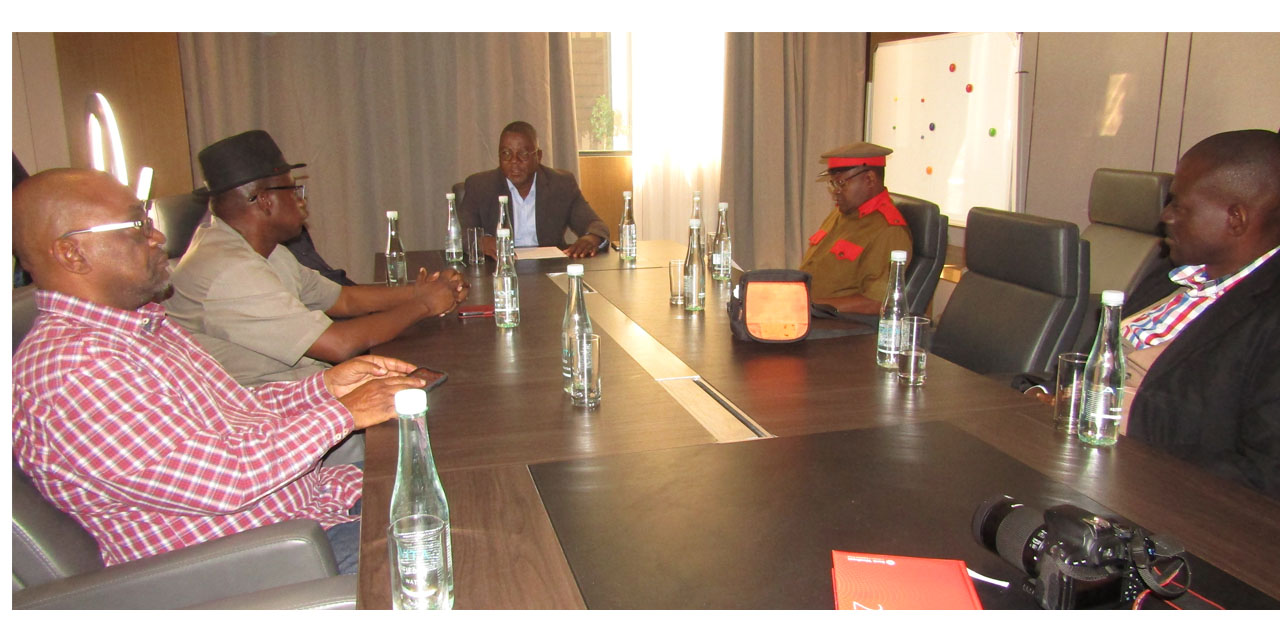Staff Writer
The only thing left now is for them to intensify the campaign for the government of the Federal Republic of Germany to recognise their genocide.
Says Mbakumua Hengari, Co-Chairperson of the Technical Committee of the Chiefs’ Assembly, established by Ovaherero and Ovambanderu traditional leaders following their consultative meeting at Okandjoze from where they emerged with the Okandjoze Memorandum of Understanding last month.
Hengari today shared with the media the chiefs’ position to recent media revelations that the German government shall not renegotiate the Joint Declaration (JD), which is an outcome of negotiations with its Namibian counterpart on Genocide, Apology and Reparations, which have been going on since 2015.
Hengari says this position by the German government is not surprising to them as descendants of those Imperial Germany’s government nearly annihilated as at no time have they been under any illusion whatsoever that this government has accepted and acknowledged the genocide against the Ovaherero, Ovambanderu and Nama. Because the six years that it has been supposedly engaged with its Namibian counterpart in negotiations, it has been becoming apparent that it has not been dealing with the Namibian government and the affected communities in good faith.
“More than anything, its drive to engage our government, has been driven by its own parochial interest, particularly the interest of our fellow German-speaking Namibians,” says Hengari.
That is why the German government has been reluctant for the descendants to participate directly and independently in the negotiations so that the affected communities represent themselves in what was supposed to be a tripartite negotiations. Essentially between the German government and the affected communities with the Namibian government as a mediator and/or observer “but standing squarely behind us as its bona fide citizens,” says Hengari. Thus, cognisant that it was and has not genuinely been engaged in the negotiations to answer to its historic and moral responsibility, the German government “has never been open to engaging us as descendants. Also well aware that these negotiations have not been about Genocide, Apology and Reparations”. That is why the Joint Declaration (JD) is underpinned by bilateralism between the Namibian and German governments. Hengari says it is an untruth that the JD is based on the 2006 National Assembly motion, which is on Genocide, Apology and Reparations as it has absolutel
y got nothing to do with such. Not only this, but for that matter the 2006 motion itself has long been derailed by the two governments. Hence the principled reservations of most descendants with the JD, even those who all along have been part of the negotiations which ultimately produced it.
Hengari says the Namibian government cannot be a neutral in this matter because in terms of the lawn of succession it has inherited obligations and liabilities of the previous governments, the German colonial government and the Apartheid regime of South Africa. In this regard Hengari thinks if the Namibian government is politically willing and serious with the issue of genocide and reparations as it pretends, it must be consequent and not wait for Germany to atone. But apply transitional justice in the country, among others, by resettling repatriates from Botswana, born in Botswana from their Namibians who escaped Imperial German genocide. While Gam was meant to be only a reception centre for them, it has become a permanent resettlement. This shows that the Namibian government is not serious with the genocide of their forebears, says Hengari. Adding that what is left to them given the intransigence of the German government and the seeming indifference of the Namibian government, is for them to take their cas
e to Africa, and to Africans in the Diaspora, as well as well as meaning international solidarity groups.




